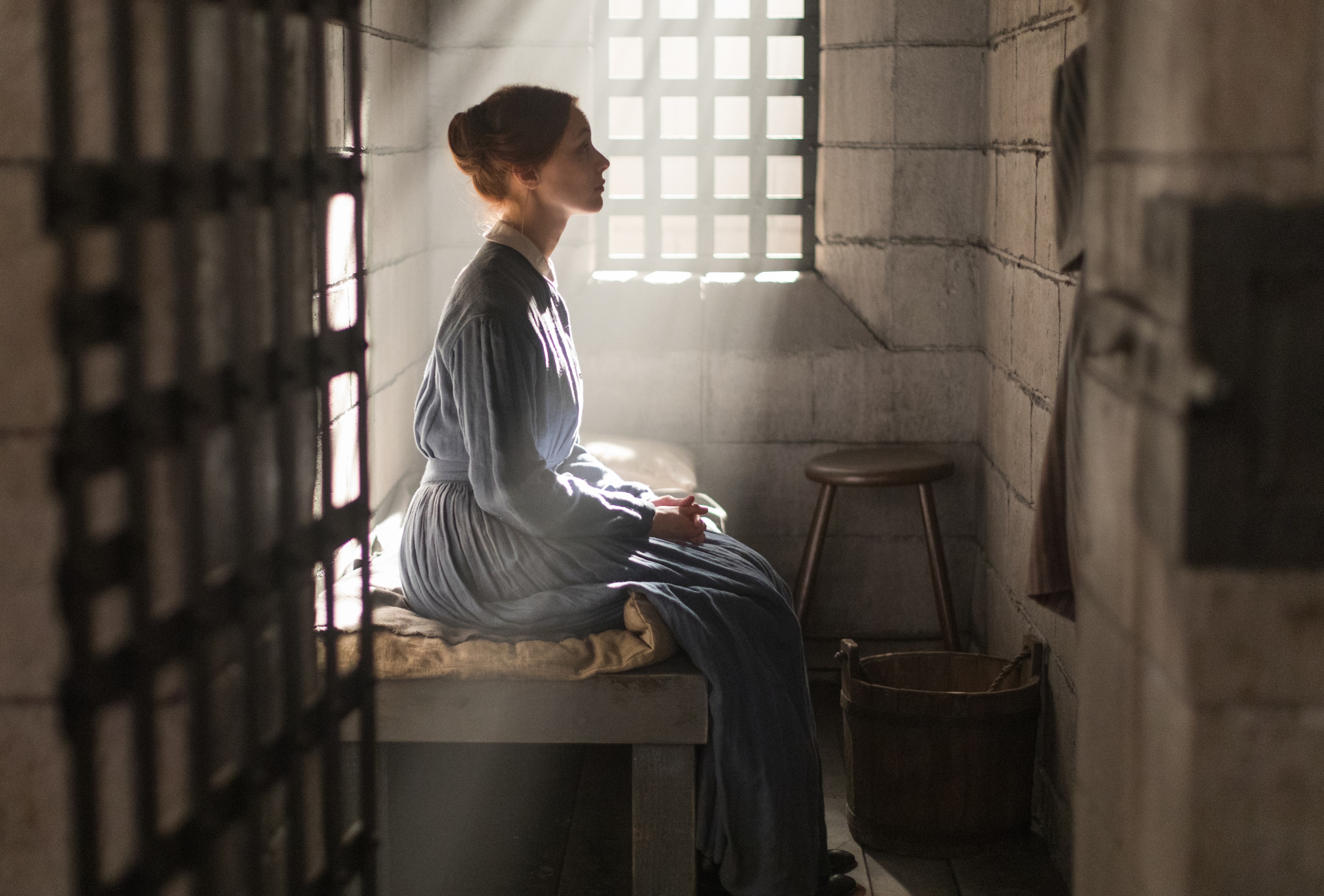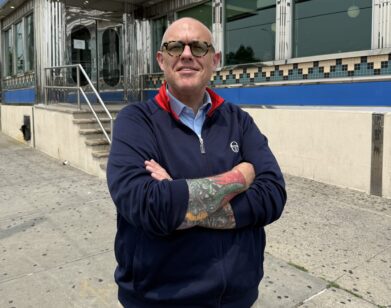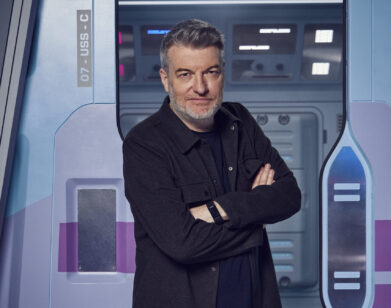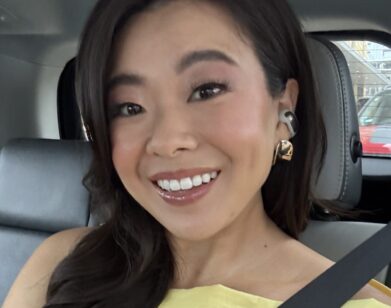Alias Grace is the next harrowing Margaret Atwood adaptation
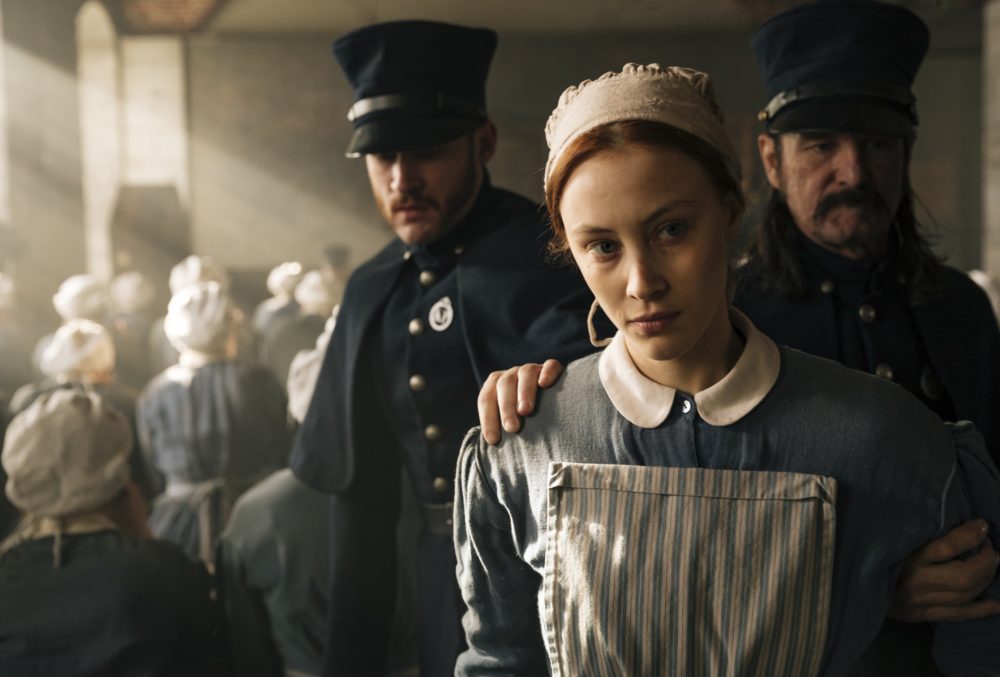
Few films can replicate the phenomenal cult status that American Psycho [2000] gained over the past two decades. Adapted from Bret Easton Ellis’s novel of the same name, the film was subject to pervasive controversy for its disturbing sequences involving a crazed serial killer chasing a woman down the stairs naked with a chainsaw. It invited both wild outrage from feminist activists—who dubbed it “misogynistic” upon its release—and unmatched admiration from those who saw through its sinister veneer. But director Mary Harron (who adapted the book into the film) remained unfazed. She called it a feminist narrative that satirized toxic masculinity. Her unique take could be attributed to the success of her other works—ones that haven’t been short of controversy or public interest either. I Shot Andy Warhol [1996], that told the story of Valerie Solanas—known for attempting to murder Andy Warhol—launched Harron into immediate fame and marked her debut as an independent and intrepid filmmaker.
What followed were films like The Notorious Bettie Page [2005] that depicted stories of troubled women that weren’t romanticized but told through a rare and real perspective. “People just didn’t understand Bettie Page, I think,” she says over the phone from New York. “I was trying to put a woman’s life on film in terms of what really happened to her without glamorizing it or turning it into a Hollywood movie.” Her curious analysis of figures such as Page is what has solidified her status as a socially conscious and feminist filmmaker. Harron doesn’t disapprove of the labels, but asserts she isn’t “ideological” with her films. “I’m just interested in things I’m interested in, really. Womens’ stories are just a part of that. They are the kinds of stories that have never been done before,” she explains.
Through Alias Grace, Netflix’s upcoming original series, Harron and writer Sarah Polley attempt to tell the story of Grace Marks—a young Irish immigrant and domestic servant in Canada who, along with stable hand James McDermott, was convicted of the brutal murders of their employer and his housekeeper in 1843. The story is adapted from Margaret Atwood’s 1996 novel and has already amassed much curiosity following the astounding success of Atwood’s dystopian drama The Handmaid’s Tale.
But unlike Offred, the house-bound protagonist of the Hulu adaptation, Grace’s story is based on true events and remains one of the greatest mysteries to this day. Was she innocent? The truth, as Harron puts it, “died with the people in that the house.”
JEENA SHARMA: I just finished watching Alias Grace. I’m honestly stunned and left with so many questions. I want to get to that but first I want to understand your point of view. What was your central message?
MARY HARRON: I don’t think there was one message but I’ve always been very interested in giving a truthful portrait of a woman’s life against her historical times. I think womens’ lives and their opportunities have been so affected by what era they live in. You can’t separate the two. There’s also the idea of public and private in terms of a woman’s public image versus their real experience. With Grace [Marks], she was a kind of a tabloid sensation and a notorious figure and people had so many different images projected on to her that you just never heard her point of view. What the original novel does is tell you her version of it—it’s her story. That fascinated me. I was also very interested in talking about exploitation of young girls. It just doesn’t get looked at, sort of like forgotten women, you know?
SHARMA: I think the most eerie part of watching the show is when you realize women are still dealing with so many of the issues addressed. Slut shaming, abortion and victim blaming are still big issues. Given all of that, has society gotten better for women at all?
HARRON: It has in some ways. The fact that we can debate abortion and the fact that things like abortion have been considered a right is a sign of advancement. The fact that women can complain about sexual abuse is also advancement. In terms of the show, what we are seeing back then is a society in which all women are basically powerless, including upper class women. No one has freedom of movement and they all have to stay in their positions unless they can maybe move a little bit up. For a woman to get pregnant out of wedlock is death; there is no recourse, no agency you can go to, and no one you can talk to about. It’s just immediate public shame.
So I think in that sense, that’s the history that we have evolved from. Obviously, now, we are trying not to go back again [laughs]. But I think it’s very important that women can now talk about these things, because one of the central themes of the show is that women are silent.
SHARMA: Margaret Atwood was also the supervising producer on most episodes. Did you have a lot in common in terms of your shared vision for the show?
HARRON: Her involvement was much more at the script stage. I think Sarah [Polley] ran a lot of stuff past her. She had talked to her a great deal when she was writing the script. But it wasn’t like [Atwood] was calling off and saying, “You can’t do this or that”. She came to the production office and the set but she was very hands-off. She understood that once a story is in production, it becomes a different animal. She was very respectful of what we had to do. I appreciated that.
SHARMA: Do you think Grace was innocent?
HARRON: If I tell you that, I’ll take your point of view away from you. I think everyone has to have their own explanations and create their own drama out of it. I really enjoy that. It’s part of what I like with stories like these, is that they have different interpretations.
SHARMA: I noticed that with American Psycho too, where it’s left up to the viewer to decide what really happened.
HARRON: I think it’s part of why that film resonated with so many people. It stays in your mind for longer. If you get a set answer, then it’s like a puzzle that’s been solved. I’ve always thought if Grace Marks was innocent, that’s not the larger story. Besides, no one knows ultimately what happened. Even if you could find out the exact truth, everyone would have a different interpretation of it. So I like the fact that people can come down on either sides of innocence or guilt. I mean, you may not know if she’d done it but even if she had, you know and can understand why she would’ve done it.
SHARMA: The initial reaction for the film and the book was very controversial and mostly negative. Feminist activists called it misogynistic. I always found that shocking because to me, the film was very feminist. Did the initial reaction make you angry?
HARRON: Thank you! It was frustrating that if you present anything that shows violence against women, which is a very large part of real life, it’s automatically considered misogynistic. To show misogyny is not the same as endorsing it. You can make a film about misogyny, but that doesn’t mean it is misogynistic. I always felt that. I mean, the book itself has a fantastic critique of a particular kind of masculinity and a satire of it. Bret [Easton Ellis] after all is a gay man, and so he also has his own critique of the alpha male, competitive, boys club kind of masculinity. Wall Street is a very good example of it. I also found the way the men behaved in the book and the film hilarious. It was a bit like teenage girls in terms of being obsessed with their looks, their status, and gossiping a lot. He’d really honed in on that and understood the absurdity of it. To me it was always very clear in the book.
SHARMA: I also saw this review somewhere that said the film probably would’ve been misogynistic if a man had directed it, instead of you. What do you think of that?
HARRON: It depends on the man. I think it was much easier for me and my co-writer Guinevere Turner because we were women. Bateman didn’t impress us, you know? We wanted to satirize him. That’s also true for Christian (Bale). He saw the humor in it.
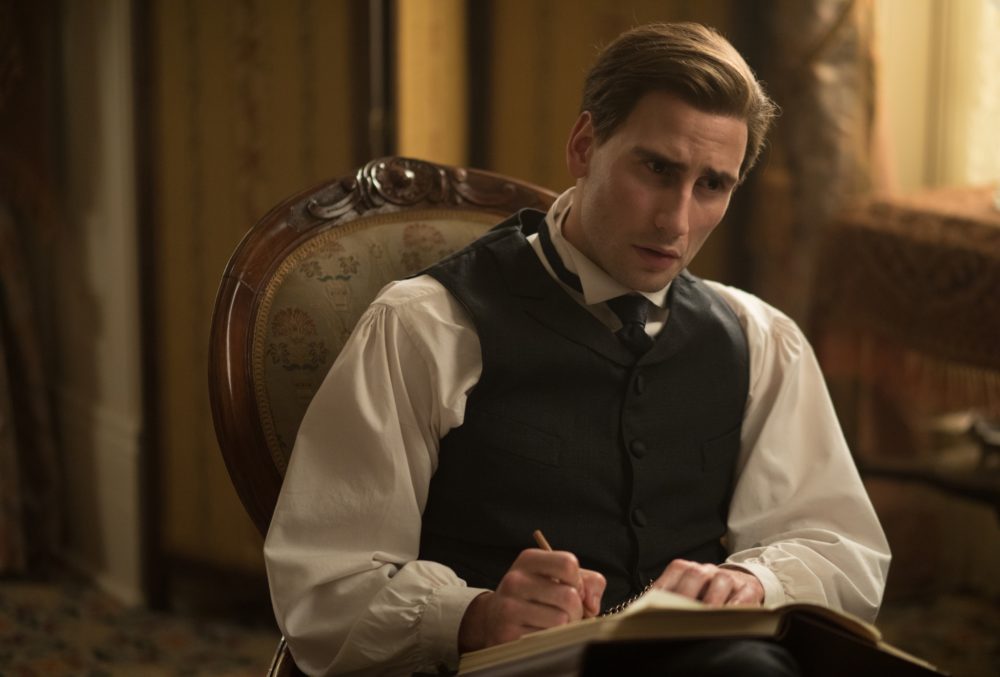
SHARMA: How did you come about casting [Bale] for American Psycho?
HARRON: Someone had recommended him to me. And then I asked Todd [Haynes] who had recently worked with him on a film and he told me he was one of the best actors he’d ever worked with. We then sent Christian the script. Incidentally, he happened to be coming over from New York to England for a couple of days. So he came and read in my apartment. I had just had a baby who was crying and my husband was taking care of it in next room while Christian was there. It was a funny domestic thing [laughs]. But I made him do the scene over and over and I could see he’s a great actor. He didn’t think Bateman was cool. He saw the character as I did and saw the absurdity of Bateman. That was very important to me.
SHARMA: Christian also has a reputation for being short tempered. Is that why you think he could play the character’s angry bits so well?
HARRON: I don’t get that because I never experienced that at all while working with him. Throughout the process, I never thought that.
SHARMA: Looking back at it now, Patrick Bateman’s obsession with Donald Trump is quite funny. Do you think you could see someone like him as President today?
HARRON: I would say he is too incompetent but then, look at Donald Trump. You just never know. We all thought it was a big joke, especially people in New York. Are you based in New York?
SHARMA: No. Why?
HARRON: Because then you’d understand that New Yorkers have a particular disliking for him. I mean, they know him well and have grown up with his terrible buildings around. It’s personal for them. It’s funny though because people often talk about how his son has a very American Psycho look. It makes sense in a way; I mean, look at his hair and his personality. He’s sort of like a pathetic and less good-looking version of Bateman.
SHARMA: I think Patrick Bateman [American Psycho], Valerie Solanas [I Shot Andy Warhol] and Grace Marks, have that insane streak in common. I saw always their sanity as a mask they were wearing until it wears off and they reveal their true selves.
HARRON: That is an interesting observation. The question is: Is madness the only truth? Obviously, with Patrick Bateman, his madness was his most authentic self and the normal self was a façade. With Valerie, you saw someone gradually taken over by paranoid schizophrenia. It’s hard to know as she evolved from her true self, what part of her mind took over. Even Bettie Page got into periods of madness later in life but I stopped the story before that happened. But either way, it’s clear I’m obviously attracted to that [laughs]. I don’t know why.
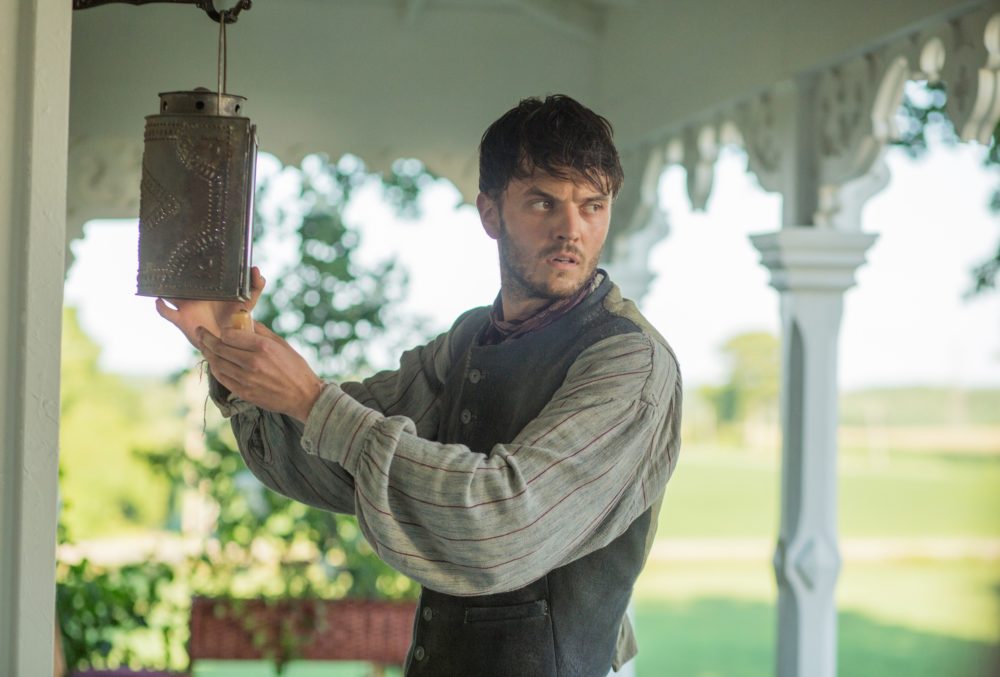
SHARMA: A recurring element of Alias Grace is that no one believes Grace. Her own lawyer doesn’t believe her. After a point, she distrusts her own knowledge of the events. I couldn’t help but connect that to the dialogue around sexual assault and rape victims today where they constantly have a hard time making others believe them.
HARRON: Yes, that is so true and I think that’s a very interesting part of the story. [Lead actress] Sarah Gadon gave such a great performance; you can see her looking stunned and paralyzed. It’s like with Harvey Weinstein; in the past, if women accused a powerful person of assault it could so easily be turned against them and so many women had their reputations tarnished. They were misrepresented as crazy or were told they were out for money. The same thing happened with Bill Cosby’s victims, where everyone said they were doing it for money or publicity. No one wanted to hear the victims’ story. In the past, we’ve had a history of not believing women or somehow slandering them. Just as in Grace’s case, in the end no one cares about the truth.
SHARMA: Do you think you had a hard time not being taken seriously when you were starting out with your first film?
HARRON: No, I had very supportive producers and a female cinematographer who was wonderful. There were a lot of other women and gay men on set, and nice straight men too [laughs]. It was a very encouraging and collaborative environment. Of course, on some other projects, I’ve had difficult experiences with the crew. When I was younger starting out in television in England, I definitely had some of those experiences. I was just lucky with my first film. But things have improved since then partly because there are just more women working within the industry. That has helped.
SHARMA: Much of your work concerns women and is very feminist. Is that something you look for when taking up a project?
HARRON: No, I don’t think I look for it. But as a female director, I have a lot of anger. It was hard for me to become a director. It’s a battle to be who you want to be. There are preconceptions about what you’re capable of. When I was in college and starting out, there was just an assumption that women are just not as capable. I had a lot of anger about that. I didn’t know when I was starting out if I’d be a good filmmaker, but I felt like I had something to say. Like with Alias Grace, it’s a story that hasn’t been told and that matters to me.
SHARMA: Your favorite moment on Alias Grace?
HARRON: There’s this part, which was originally in the final cut but they put it in the very beginning. Grace is looking in the mirror and talking about everybody’s impressions of her and the public image she has. She is just looking in the mirror and as her face and expression change. I thought that was really beautiful.
SHARMA: I quiet liked the final line in the show, “Now we all come together.” What was that supposed to mean?
HARRON: Oh, that is my favorite line in the entire show! It meant that their lives are all similar and they are all tied together. They are in the same boat and subject to the same atrocities as women.
ALIAS GRACE IS AVAILABLE ON NETFLIX NOVEMBER 3, 2017.

